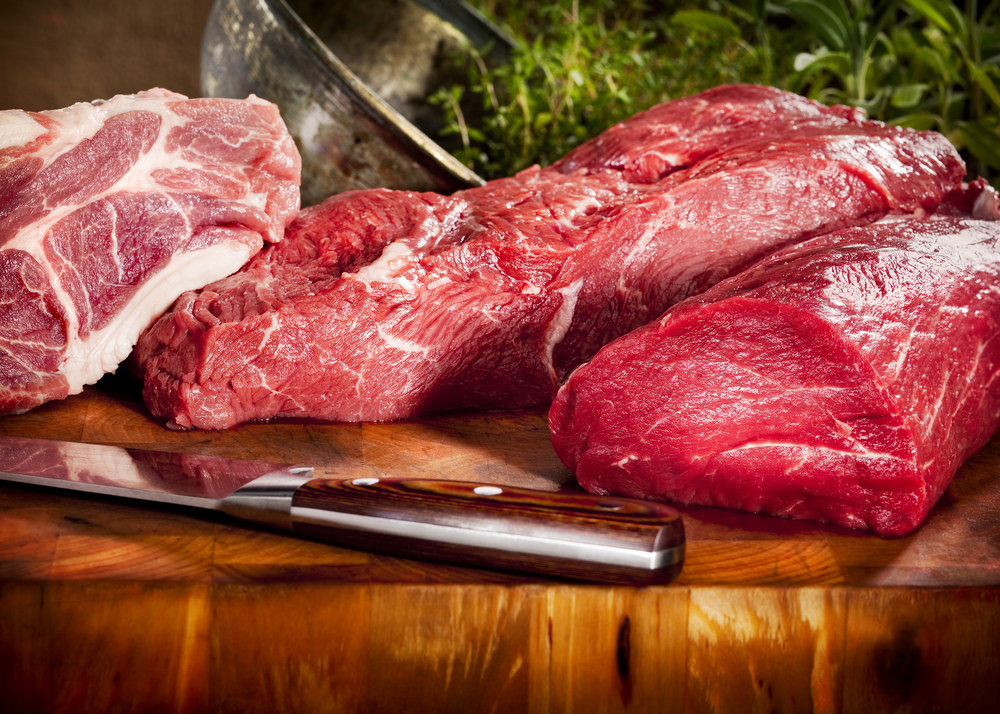Organic Meat May Have Higher Parasite Risk

A food-borne illness known as toxoplasmosis doesn't grab the headlines the way salmonella or E.coli outbreaks do, but new research suggests that some organic meats may be more likely to carry this parasite, which can then be transmitted to consumers who eat these meats, if undercooked.
"The new trend in the production of free-range, organically raised meat could increase the risk of Toxoplasma gondii contamination of meat," the authors wrote.
The researchers point out that eating undercooked meat — whether organic or conventionally raised — especially pork, lamb and wild game such as venison, is one of the main ways people become infected with the toxoplasma parasite. People can also contract the infection by not washing raw fruits and vegetables, which may have come in contact with soil contaminated by cat feces.
Cats can spread toxoplasmosis after eating other infected animals and then passing the parasite along in their feces. This can contaminate not only home litter boxes, but the soil or water if a cat goes outside.
Although perhaps as many as one in five Americans carry the parasite, few people have symptoms because the immune system in healthy people does a good job of preventing T. gondii from causing illness. Toxoplasmosis presents more of a threat to pregnant women and people with a weakened immune system, especially if they change cat litter boxes or touch contaminated soil when gardening.
In its earliest stages, the illness causes flulike symptoms, and if severe, can cause damage to the brain, eyes and other organs.
The research was published online May 22 in the journal Clinical Infectious Diseases.
Get the world’s most fascinating discoveries delivered straight to your inbox.
Organic meat risks
The new research reviews the foods most likely to carry the parasite, and how people can prevent becoming sickened by it. The foods with the greatest chance of carrying toxoplasmosis parasites in the U.S. include raw ground beef or rare lamb; unpasteurized goat's milk; locally produced cured, dried or smoked meat; and raw oysters, clams or mussels.
Growing consumer demand for "free-range" and "organically raised" meats, especially pork and poultry, will probably increase the prevalence of T. gondii when people undercook and eat these foods, according to the study's authors, Dr. Jeffrey Jones, of the parasitic diseases branch of the Centers for Disease Control and Prevention, and J.P. Dubey, of the USDA's Animal Parasitic Disease Laboratory.
That's because as more pigs or chickens are raised in less confined, more animal- friendly environments, they have greater access to grass, soil, feed or water that may be in contact with infected cat feces, or to rodents or wildlife infected with T. gondii.
Compared with chickens raised indoors, the prevalence of the parasite in free-range chickens is much higher, anywhere from 17 percent up to 100 percent, in some estimates. (But the risk is low for chicken eggs, the authors noted.)
Other research has shown that more organically raised pigs have tested positive forT. gondii than conventionally raised pigs.
Sheep also have a higher likelihood of being contaminated with toxoplasma, as do game meats such as deer, elk, moose and wild pig. Beef and dairy products have not yet played a main role in transmitting the infection, except for eating raw or undercooked ground beef.
Keys to prevention
"Toxoplasmosis in an under-recognized source of food-borne illness and attracts little public attention," said Douglas Powell, a professor of food safety at Kansas State University in Manhattan, Kan. "People are not as familiar with this parasite, so we think it doesn't happen much," he explained.
Yet, toxoplasmosis is one of five "neglected parasitic diseases" targeted by the CDC as a public health priority.
By one recent U.S. estimate, toxoplasmosis was the second-leading cause of food-borne illness deaths (salmonella is first), claiming more than 300 lives a year. The parasite was also responsible for more than 4,000 hospitalizations annually, ranking it fourth among food pathogens.
Cooking meat thoroughly should reduce the risk of becoming infected, Powell said, because parasites are usually found on the insides of animals, not on the meat's surface. He said people should be very careful when eating rare meat, and always verify cooking temperatures with a tip-sensitive digital thermometer placed in the meat's thickest part.
To prevent getting sickened by toxoplasmosis, the researchers recommended cooking whole cuts of pork, lamb, veal or beef to 150 degrees Fahrenheit, and resting the meat for three minutes before eating it. Ground meat and wild game should be cooked to 160 F or higher, and poultry to 165 F. Microwave cooking may not kill the parasite.
As consumers shift their eating preferences, whether it's to organic foods or to less-processed foods, the microbial risks are altered, Powell said. "Whatever food- production system we come up with, some 'bugs' will find a way to adapt and flourish. So the key is continual vigilance."
Pass it on: Organic meats may carry a higher risk of the parasite toxoplasmosis.
This story was provided by MyHealthNewsDaily, a sister site to LiveScience. Follow MyHealthNewsDaily on Twitter @MyHealth_MHND. Find us on Facebook.
Cari Nierenberg has been writing about health and wellness topics for online news outlets and print publications for more than two decades. Her work has been published by Live Science, The Washington Post, WebMD, Scientific American, among others. She has a Bachelor of Science degree in nutrition from Cornell University and a Master of Science degree in Nutrition and Communication from Boston University.
